-
Jimothy Lacoste: The Newcomer Shaking Up English Music
Talent: Jimothy Lacoste. Creative Director: Yann Weber. Photographer: Jenny Brough. Hairstylist: Sven Bayerback. Stylist: Adrian Bernal. Producer: Guillaume Folliero de Luna.
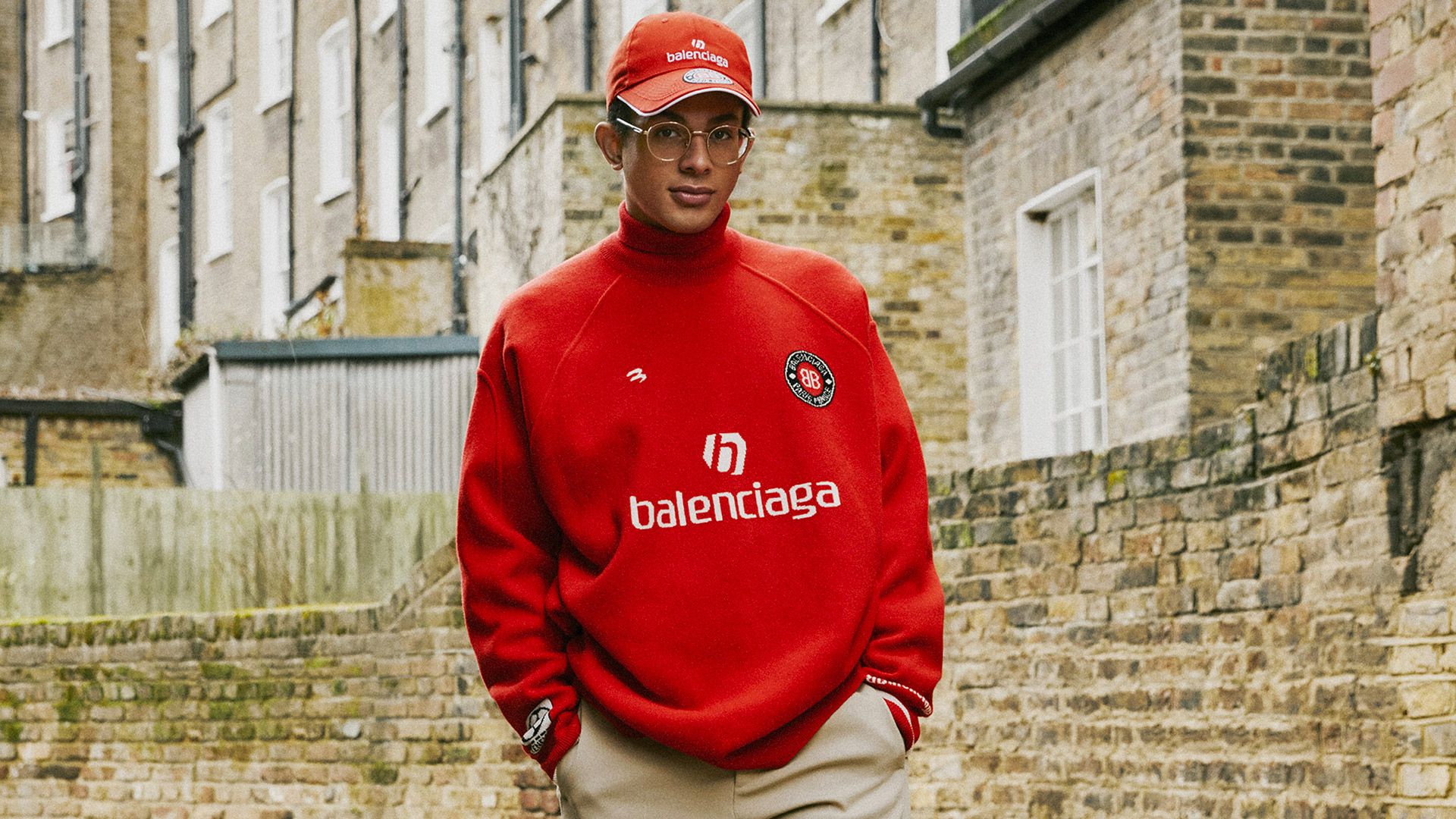
Printemps.com: Your latest single is called "Describe a Villain." Do you consider yourself a bad person?
Jimothy Lacoste: At certain points of my life, I may have acted like one, of course. I sometimes listen to those demons in me, as if I needed to give in to my bad instincts. We do have this way of giving in to our temptations, and it's even a big part of the song. It's often in moments like this that we create our biggest problems.
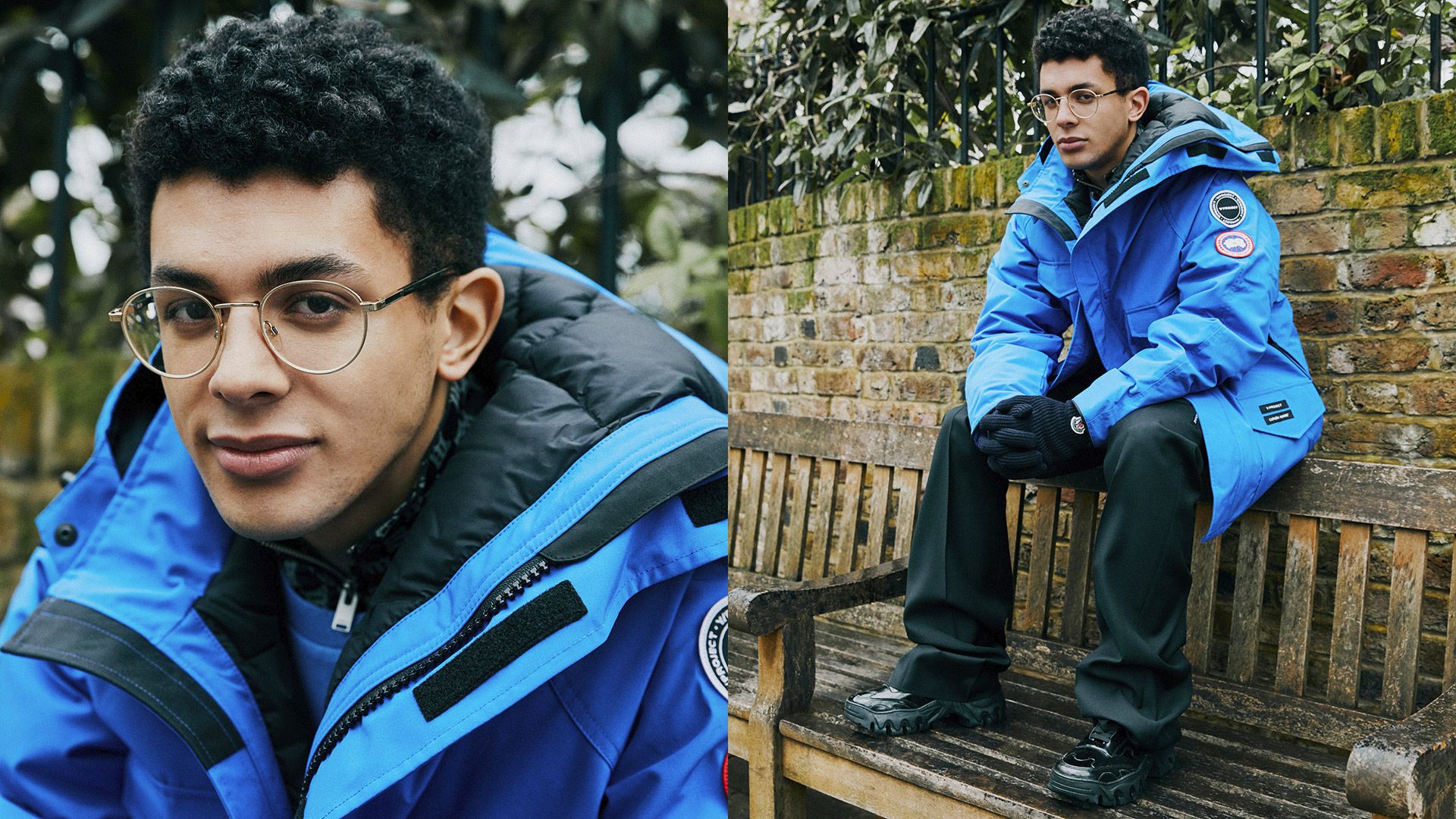
What kind of teenager were you?
When I was younger, I thought a lot about the future. Pretty early, I ended up spending time with kids from the upper classes. They were in private schools, but I met them at parties. Alongside that, around 13 or 14, I was hanging out with guys who were around ten years older than me. They were street artists, and it gave me the opportunity to discover a world that I quickly became very invested in. Today, I clearly enjoy the present much more than I did then, but it's also true that I've always tried to be a bit different. And the RnB that my mom listened to, along with grime and UK garage, these two really British types of music, very particular to London itself, really influenced me.
Do you feel close to other London-based artists?
I wouldn't say I'm close to them, but I love the music of my generation, whether it's King Krule, Playboi Carti, or Lil Uzi Vert. They all have this really unique world, perhaps even more so than the one I've created, but also because I don't want to cut myself off from anything. I listen to everything and I can't see myself not making a rock track, or house or pop, if I feel like it. The idea is to envision music in the same way as these artists I loved when I was young, and who are still such idols for me. And now I feel it's my time to be that artist.
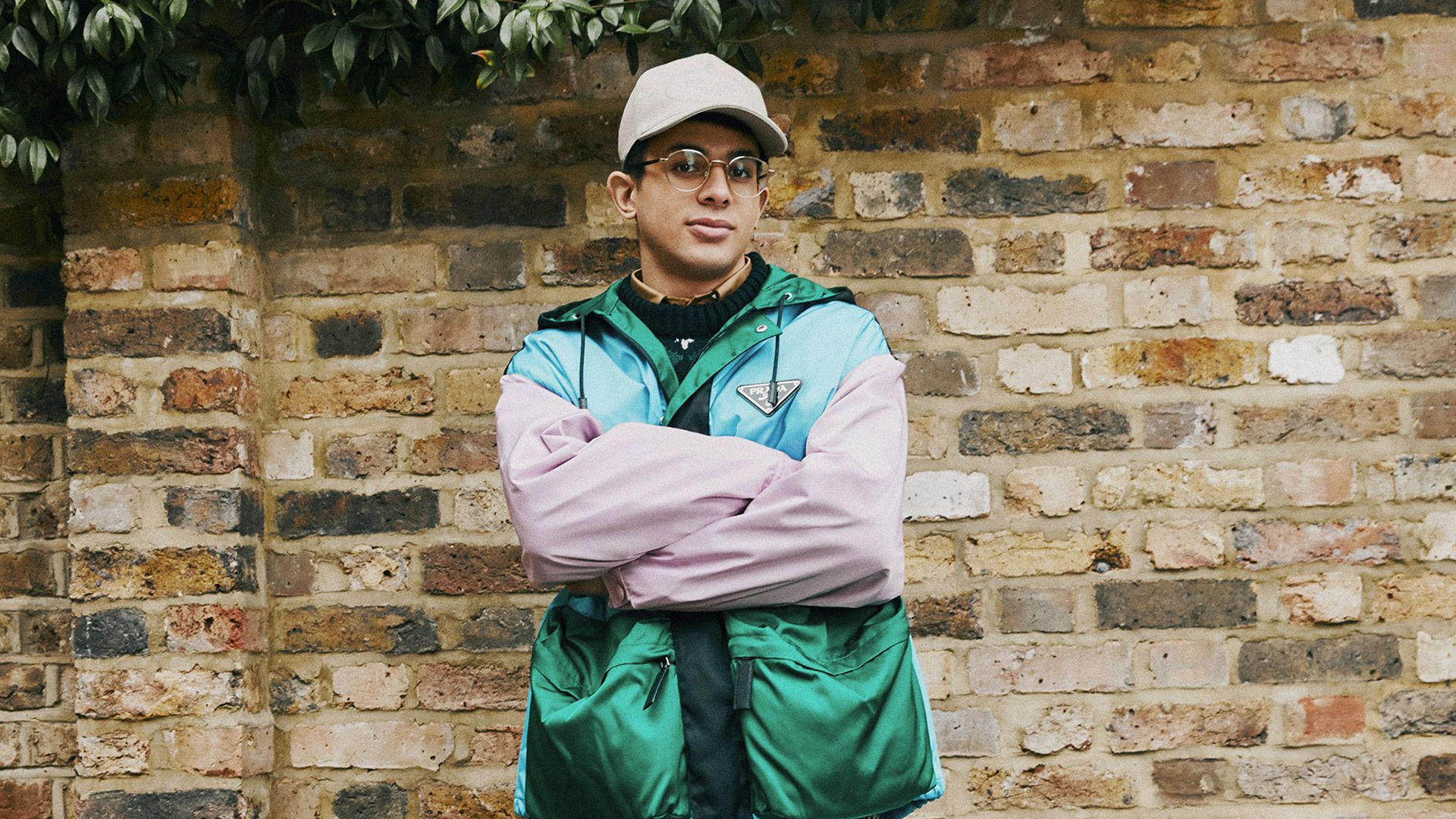
Cap Prada, Hooded jacket Prada, Poplin cotton shirt Prada, Wool and cashmere sweater Prada.
You've done a few interviews with fashion magazines. Is style something that's important to you?
Yes, I love clothes and I love designers. But I think I also have more of an attraction to style than to fashion properly speaking. Style is really an affirmation of the self, a way of expressing where you're from and where you're going. It goes beyond the simple fact of wearing this or that, simply because it seems cool to wear this brand and not another one.
So how do you define your style?
I think I'm at once classic and relaxed. I've never had a lot of money, but the fact that my sister works in retail has clearly had an effect: she often offered to buy me clothes, so I was always able to dress well.
You've worked with different fashion houses: is this a way for you to make a living from your art?
Yes, absolutely! It's something that can help finance an album, a clip, whatever. And then it also leaves the time to work on other projects. But the truth is that I don't accept all the offers, even if they're really interesting in a financial sense. The most important thing to me is that the clothes complement the world I'm constructing, especially with individual songs. And in music videos, I always ask myself which brands I want to wear. In my view, it's not a question of the quality or the paragraph fw-bolder of the clothes, but more about what's needed so that an outfit stands out, so that the style is mine and allows the public to recognize that. You need to show who you are, and clothes are a part of that process. It's also why I see certain threads as a kind of trophy attesting to my success.
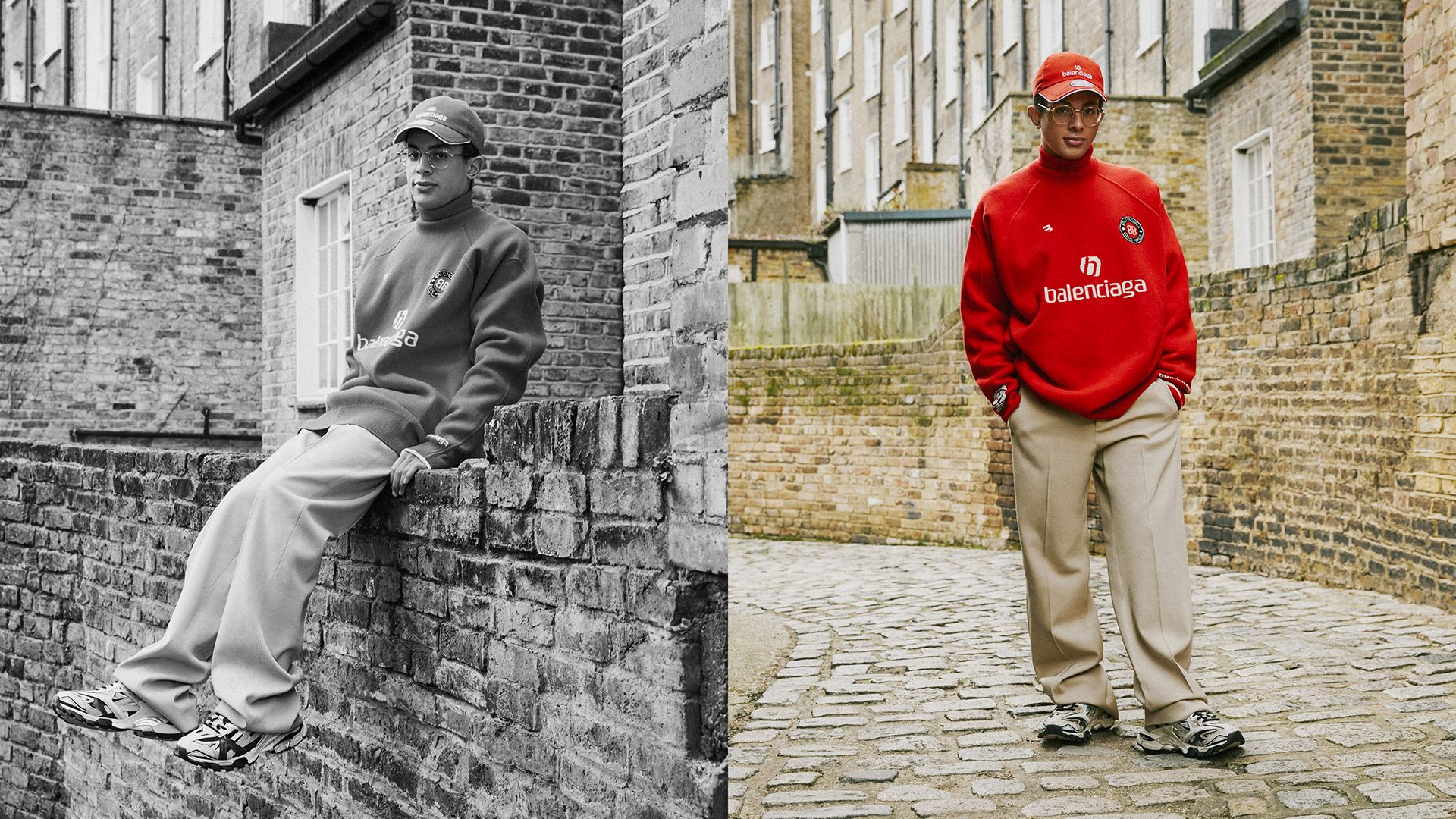
You often talk about your favorite brands, like Burberry, in your songs. Why?
Yeah, I love clothes and I love designers. But I also think that I'm more attracted to style than fashion. Style is really an affirmation of the self, a way of expressing where we're from and where we're going. It goes above and beyond the simple fact of having this or that gear, just because it's cooler to wear one thing rather than another.
There's also your nickname. Why did you choose Lacoste over another brand?
It's the first brand I bought with my own money. My mother gave me something like ten pounds every two or three weeks, and I always spent that on spray paint. As soon as I had my own cash, I treated myself to a few duds from Lacoste. I was so fascinated by this brand that it just seemed natural to me to adopt it as part of my stage name, even if today I'm trying to give that another meaning.
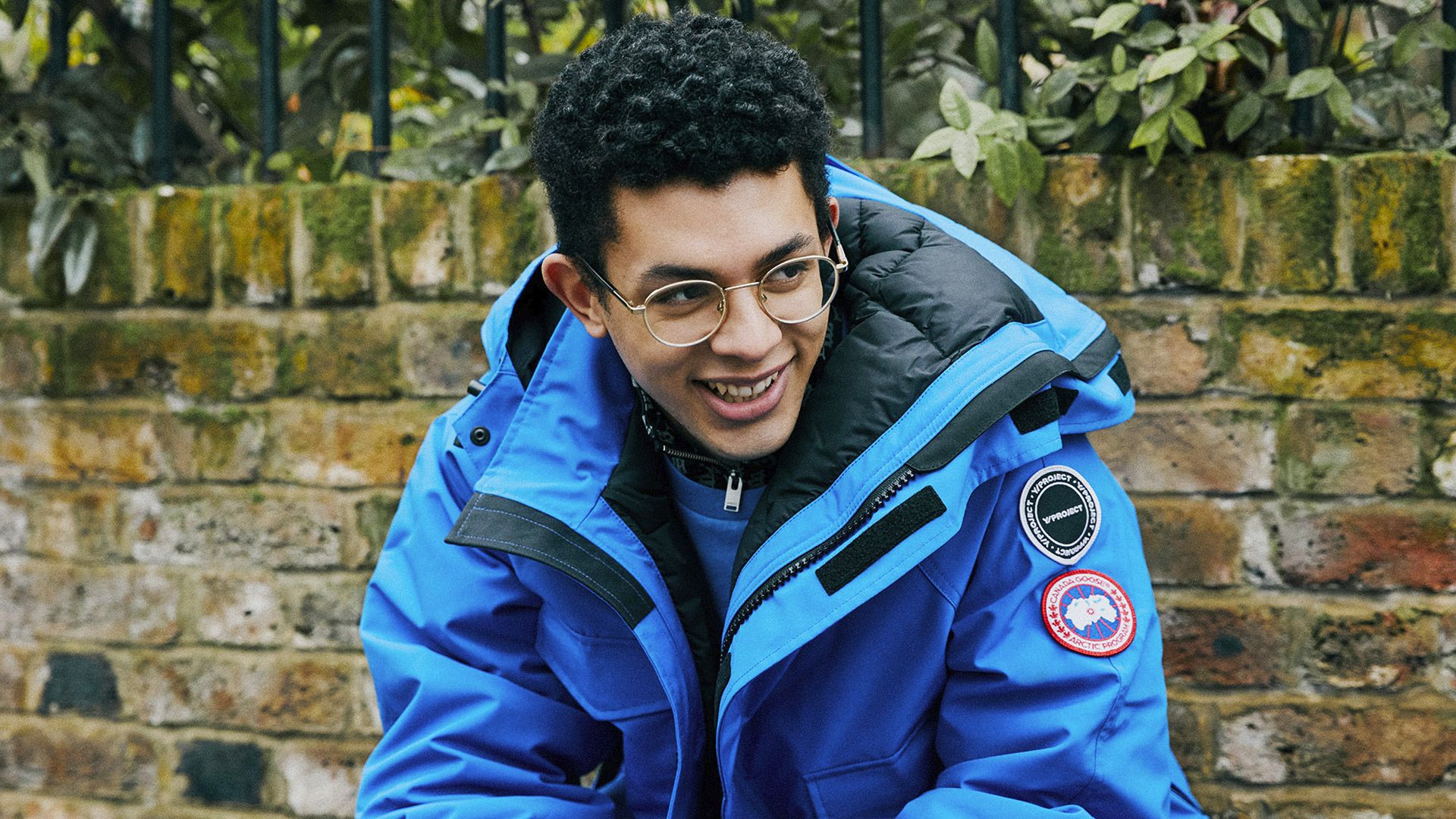
What do you mean by that?
I see myself as a bit like a crocodile — I observe the gaze that's on me, with my eyes kind of just above the water, and it allows me to jump on an opportunity as soon as I sense it.
In one of the tracks off your latest album, The Safeway, which came out in July 2020, you talk about more serious subjects like dyslexia, absent father figures, and anxiety. Would you say that these songs are personal?
Of course, yes! The title of the album, even, is a way of taking a bird's eye view on everything I've been through since my childhood. By telling these stories, I'm able to see that I've taken the right path into the now. So, The Safeway quite simply because I never knew that feeling of security when I was younger. Today, I want to enjoy it.
Are you able to write every day?
No, unfortunately not. Sometimes I'm able to get something decent out over the course of two or three months, but I'm always motivated, always brimming with new ideas. They can come out of nowhere: after eating, getting dressed or just listening to other music that I love.
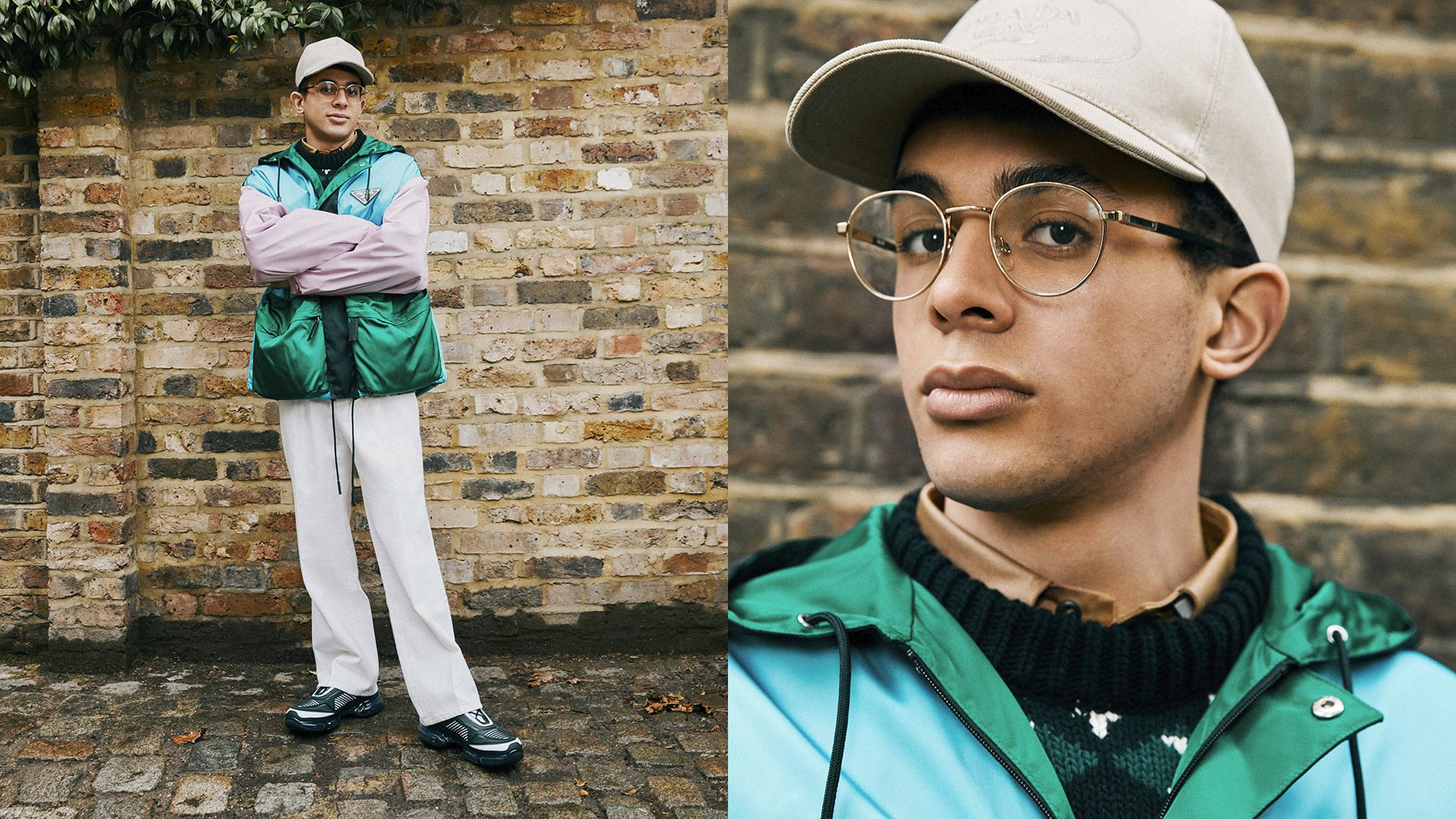
Do you think that dyslexia has affected your work?
Yes, it absolutely has. When I was little I went to a specialized school, and I had significant behavioral issues. Without a doubt, that's played on how I feel this need to be different. Having this disability has motivated me to keep an open mind, but also to create my own music, with my own production — without sampling other work.
Today, your motto is LIGQE — Life is Getting Quite Exciting. Why this slogan?
Because I think we need to remain excited and happy about what life offers us: it's the best way to ensure that we don't drown in melancholy. We can go out and get food, watch our favorite series for three hours and just appreciate how that feels. The idea behind this lifestyle is really about enjoying life every day, without it necessarily being linked to extraordinary events. We just need to find ways to take care of ourselves.
Is that also why you dance in almost all your videos?
I learned to dance by playing video games and I don't think I'm even capable of listening to music without wanting to move. That's where my clips come from, like where I'm dancing on a bus, in the subway, or in the Ikea parking lot.
So what should we expect from you in the near future?
Maybe not a new album, but definitely more singles. I want to make songs that make people want to dance.